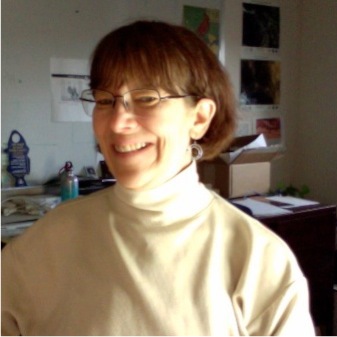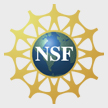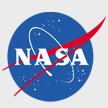Meet the Team
 Principal
Investigator: Dr. Scott Ollinger is a Professor at
the University of New Hampshire with research interests in
forest ecology, carbon and nutrient cycling, and effects of
climate change and air pollution on ecosystems. His work
involves a combination of field studies, remote sensing and
ecological modeling at local to continental scales. Scott is
an investigator with the North American Carbon Program, and
is on the Board of Directors for the National Ecological
Observatory Network (NEON), the science study group for
NASA's HyspIRI mission, and the Steering Committee of the
Northeastern States Research Cooperative.
Principal
Investigator: Dr. Scott Ollinger is a Professor at
the University of New Hampshire with research interests in
forest ecology, carbon and nutrient cycling, and effects of
climate change and air pollution on ecosystems. His work
involves a combination of field studies, remote sensing and
ecological modeling at local to continental scales. Scott is
an investigator with the North American Carbon Program, and
is on the Board of Directors for the National Ecological
Observatory Network (NEON), the science study group for
NASA's HyspIRI mission, and the Steering Committee of the
Northeastern States Research Cooperative.
 Project
Coordinator and Master Trainer: Ms. Sarah Sallade
has a BS in Natural Resources from the University of Vermont
and MS and MEd degrees from the University of New Hampshire.
Sarah has studied in Norway and has been a research fellow
with the NASA Goddard Space Flight Center. Her
Master's research involved carbon cycling of forests of the
northeastern US. From 2006-2012, Sarah primarily worked to
translate terrestrial carbon cycle research into hands-on
educational and student research activities for K-12
classrooms. In collaboration with the international GLOBE
education program, she travels locally and globally to train
teachers and teacher-trainers on the Carbon Cycle project
materials. She is now a practicing GLOBE teacher at Sanborn
Regional High School in Kingston, NH.
Project
Coordinator and Master Trainer: Ms. Sarah Sallade
has a BS in Natural Resources from the University of Vermont
and MS and MEd degrees from the University of New Hampshire.
Sarah has studied in Norway and has been a research fellow
with the NASA Goddard Space Flight Center. Her
Master's research involved carbon cycling of forests of the
northeastern US. From 2006-2012, Sarah primarily worked to
translate terrestrial carbon cycle research into hands-on
educational and student research activities for K-12
classrooms. In collaboration with the international GLOBE
education program, she travels locally and globally to train
teachers and teacher-trainers on the Carbon Cycle project
materials. She is now a practicing GLOBE teacher at Sanborn
Regional High School in Kingston, NH.
 Master Trainer: Ms. Jennifer Bourgeault
has been with the GLOBE Program since 1997. After teaching
high school for a number of years, she joined the
Landcover/Biology Team; and in 2007, the GLOBE Carbon Cycle
team. Ms. Bourgeault is also the NH GLOBE Partnership
Coordinator. She has a BA in Zoology with a concentration in
Marine and Freshwater Biology and an MEd in Biology. She has
trained hundreds of teachers in GLOBE through the country,
conducted landcover research using student-collected GLOBE
data, designed supporting classroom materials, provided
professional development for teachers in field
investigations, presented at scientific and education
conferences, and currently serves on GLOBE advisory
committees.
Master Trainer: Ms. Jennifer Bourgeault
has been with the GLOBE Program since 1997. After teaching
high school for a number of years, she joined the
Landcover/Biology Team; and in 2007, the GLOBE Carbon Cycle
team. Ms. Bourgeault is also the NH GLOBE Partnership
Coordinator. She has a BA in Zoology with a concentration in
Marine and Freshwater Biology and an MEd in Biology. She has
trained hundreds of teachers in GLOBE through the country,
conducted landcover research using student-collected GLOBE
data, designed supporting classroom materials, provided
professional development for teachers in field
investigations, presented at scientific and education
conferences, and currently serves on GLOBE advisory
committees.
 Co-Investigator: Dr. Mary
Martin is a Research Assistant Professor at the
University of New Hampshire. She has a PhD in Natural
Resources and is a specialist in botany and remote sensing
as a means of mapping forest growth and species composition.
Her research interests include the use of hyperspectral
remote sensing data for the determination of forest
productivity, nutrient cycling, and species classification.
In addition, Mary works on projects that involve the
development of hyperspectral methods to detect forest health
and insect infestation, and the development of an online
foliar chemistry database which compiles data from multiple
research efforts.
Co-Investigator: Dr. Mary
Martin is a Research Assistant Professor at the
University of New Hampshire. She has a PhD in Natural
Resources and is a specialist in botany and remote sensing
as a means of mapping forest growth and species composition.
Her research interests include the use of hyperspectral
remote sensing data for the determination of forest
productivity, nutrient cycling, and species classification.
In addition, Mary works on projects that involve the
development of hyperspectral methods to detect forest health
and insect infestation, and the development of an online
foliar chemistry database which compiles data from multiple
research efforts.
 Co-Investigator: Dr. Jana Albrechtova
is an Associate Professor of plant anatomy and physiology at
Charles University in Prague. Her research interests include
forest ecology, ecophysiology of mountain Norway spruce,
monitoring forest health, inking foliage and soil chemistry,
stress studies in mycorrhizal fungi. Jana has been actively
involved with the GLOBE program in the Czech Republic and is
happy to be teaming up with GLOBE Carbon Cycle project.
Co-Investigator: Dr. Jana Albrechtova
is an Associate Professor of plant anatomy and physiology at
Charles University in Prague. Her research interests include
forest ecology, ecophysiology of mountain Norway spruce,
monitoring forest health, inking foliage and soil chemistry,
stress studies in mycorrhizal fungi. Jana has been actively
involved with the GLOBE program in the Czech Republic and is
happy to be teaming up with GLOBE Carbon Cycle project.
 Co-Investigator:
Dr. Annette Schloss is a research Scientist at the
University of New Hampshire. Her research specialties
include Earth science education and outreach through
web-based resources and aquatic ecosystems, including remote
sensing of freshwater resources. Annette has worked for many
years with citizen science programs and is the co-leader of
both the Digital Earth Network (DEW) and the Picture Post
network, a project for citizens and educators to share
digital photographs from a local area of interest, including
their GLOBE Landcover and Carbon Cycle field plots. She has
a PhD in Zoology from the University of New Hampshire.
Co-Investigator:
Dr. Annette Schloss is a research Scientist at the
University of New Hampshire. Her research specialties
include Earth science education and outreach through
web-based resources and aquatic ecosystems, including remote
sensing of freshwater resources. Annette has worked for many
years with citizen science programs and is the co-leader of
both the Digital Earth Network (DEW) and the Picture Post
network, a project for citizens and educators to share
digital photographs from a local area of interest, including
their GLOBE Landcover and Carbon Cycle field plots. She has
a PhD in Zoology from the University of New Hampshire.

Evaluator: Dr. Lara Gengarelly is a Lecturer in the Department of Education at the University of New Hampshire. She has a PhD in Plant Biology and is a specialist in plant ecology and botany. She also has extensive background in science education. Lara has taught science in both middle and high schools. Most recently she teaches education courses and supervises pre-service teachers. Her research interests include inquiry-based science teaching and learning, STEM learning for English language learners, and collaborative learning models. Lara has worked on science education projects that involve partnerships between scientists and secondary school teachers, such as the UNH-GK-12 project and the UNH-Climate Science project. Lara has provided professional development for teachers, designed curriculum, and served as the evaluator for the GLOBE Carbon Cycle Project.
 Research Assistant: Ms. Haley Wicklein
has a BA in Biology from Earlham College and an MS in
Natural Resources from the University of New
Hampshire. Her Master's research focused on the
relationship between foliar chemistry and ecosystem
processes. Haley has taught environmental education at the
middle school level, and been a research fellow with the
NASA Goddard Space Flight Center. She loves both scientific
research and working with students and is excited about
sharing her experience with the GLOBE Carbon Cycle Project.
Research Assistant: Ms. Haley Wicklein
has a BA in Biology from Earlham College and an MS in
Natural Resources from the University of New
Hampshire. Her Master's research focused on the
relationship between foliar chemistry and ecosystem
processes. Haley has taught environmental education at the
middle school level, and been a research fellow with the
NASA Goddard Space Flight Center. She loves both scientific
research and working with students and is excited about
sharing her experience with the GLOBE Carbon Cycle Project.
 GLOBE Project Leader: Mr.
Gary Randolph, involved in GLOBE since 1994, has 20
years of experience in teaching and developing environmental
education activities with 10 years experience in workshop
facilitation and coordination. He contributed to the
development of the GLOBE Teacher's Guide and created the
Understanding GLOBE Student Data activities to inspire the
collection, reporting, and using of GLOBE data in student
research. He has a background in wildlife biology and
environmental education.
GLOBE Project Leader: Mr.
Gary Randolph, involved in GLOBE since 1994, has 20
years of experience in teaching and developing environmental
education activities with 10 years experience in workshop
facilitation and coordination. He contributed to the
development of the GLOBE Teacher's Guide and created the
Understanding GLOBE Student Data activities to inspire the
collection, reporting, and using of GLOBE data in student
research. He has a background in wildlife biology and
environmental education.

